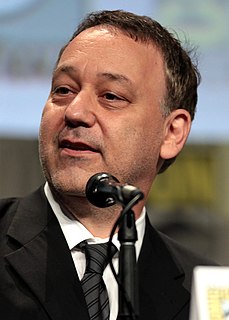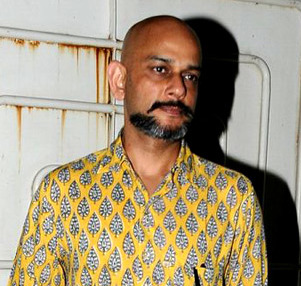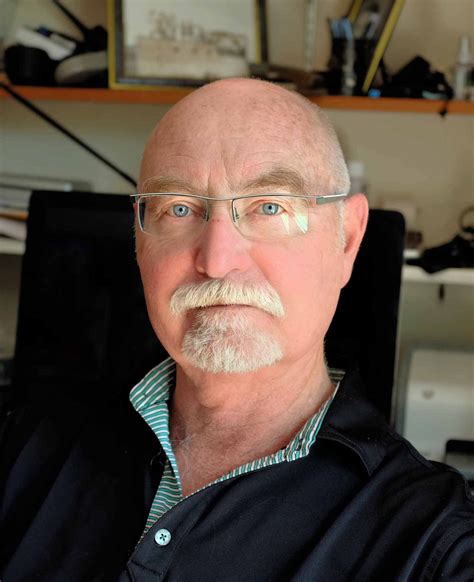A Quote by Sam Raimi
Every filmmaker knows that when you make a book into a movie, the first thing you have to do is kill the book, unfortunately. You've got to recreate it.
Quote Topics
Related Quotes
I'd say the purest experience for the movie is not to have read the book because I think when you've read the book you're just ticking off boxes. I think that after you see the movie, reading the book is a cool thing. I always say the movie's not meant to replace the book. That's ridiculous. I'm a huge fan of the book.
You know, not every good book needs to be a movie, or a television series, or a video game. There's great work in those mediums, of course, but sometimes a book should remain a book. I still believe nothing tells a story with the richness and complexity of a good novel. When people say they think a book would make a good movie, they say this sometimes because, if it worked, they already saw all the images in the movie theatre that is in their brains. And sometimes that is the way it should stay.
When I was younger, I felt it essential to see every movie ever made. Now I feel as though I've got to read every book, see every art show, watch every play and opera and concert and so on. It does not end, and of course there is truth in the old cliche that the more one knows, the more one realizes one knows nothing at all.
Wayne Wang, the director of Because of Winn-Dixie the movie, understood the book and transferred as much of the feeling of the book onto film as humanly possible. I think he did a fabulous job. And also I'm thrilled because the movie brings people to the book - people that wouldn't know about the book - and that's a great thing.
You all know that certain things are necessary to make a religion. First of all, there is the book. The power of the book is simply marvellous! Whatever it be, the book is the centre round which human allegiance gathers. Not one religion is living today but has a book. With all its rationalism and tall talk, humanity still clings to the books. In your country every attempt to start a religion without a book has failed. In India sects rise with great success, but within a few years they die down, because there is no book behind them. So in every other country.
Obviously it's easier when I' m doing the adapting myself. But my feeling is, your potential upside far outweighs the downside. Ultimately, they [moviemakers] can't change your book. Your book remains on the shelf the way you wrote it. If they make a great movie of your book, then you have the equivalent of millions and millions of dollars of advertising for your book. If the movie's not that good, that doesn't mean the book's not good. It doesn't change what you've already written. It has the potential to reach more people.
My first book, 'To Be or Not To Be,' took 'Hamlet' and converted it to the choose-your-own-path format. It was a great fit for a book where you control what happens - a book as game - because the plot of 'Hamlet' is very game-like: get a mission from a ghost to kill the final boss, kill the final boss, and game over. You win.






































